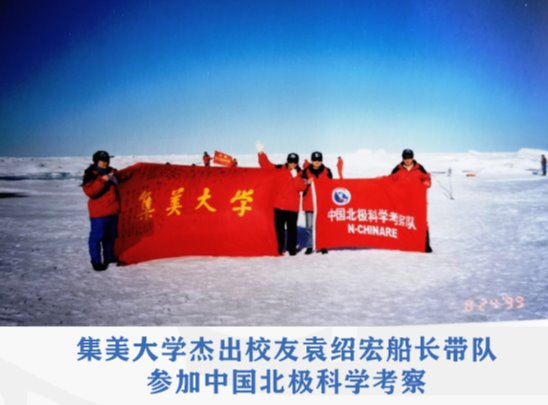简介
About PMRI

我国海洋经济实现快速发展,海洋生态文明建设不断强化,极地考察和海洋科考实现重⼤突破,取得了举世瞩⽬的成就。为加强对极地与海洋的了解,更好地⽀持和参与极地考察工作,服务于我国的海洋强国建设,集美大学决定成立“集美大学极地与海洋研究院”。其实早在1991年就已经有去南极的集大人,后来也陆续有集大人前往南极和北极,而“雪龙号”的船就是集大人。
2020年4月23日,中国第36次南极考察的“雪龙”号和“雪龙2”号船已返回上海国内 基地码头,标志着中国南极考察暨首次“双龙探极”圆满完成。而此次集美⼤学成立“集美大学极地与海洋研究院”助力集⼤海洋学科的建设,未来将不断地为,极地与海洋探索做出更多贡献。集美⼤学极地与海洋研究院于2021年9⽉成立,致力于为我国气候变化应对和生态文明建 设的重大需求提供科学支撑和决策参考。研究院聚焦全球气候变化的重大科学问题,下设3个研究方向,方向1为极地海洋环境演变与⽣态系统监测,方向2为中国滨海与养殖区海洋碳中和科学、工程和管理技术,方向3为中东盟珊瑚礁区环境与生态系统演变。从科学、工程、技术等多⻆度探究⽓候变化对海洋环境带来的影响,具备多学科交叉的特⾊。研究院秉持开放合作的理念,坚持⾛国际化道路,努力建设成为具有国际影响力的研究基地。
The marine economy of China has achieved rapid development and the marine ecologic civilization construction have been strengthened. Moreover, significant breakthroughs have been made in the polar scientific expeditions and attracted worldwide attention. Aiming to deepen the understanding on the polar regions and ocean, provide better support for polar exploration, and put efforts to build China into a strong maritime country, the Polar and Marine Research Institute (PMRI) of Jimei University was established. The JMUers (i.e., people once studied or worked in Jimei University) have been to the south pole in 1991 and the both poles later. The captain of the icebreaker XueLong is a JMUer. The icebreaker XueLong is the largest polar research vessel of China. In addition, it is the only icebreaker which could work in the polar regions by breaking the ice (1.2m) with the speed of 1.5 nautical mile per hour. On April 23, 2020, the icebreakers XueLong and XueLong 2 have docked in Shanghai, marking the success of the 36th scientific expeditions of the south pole. The establishment of PMRI aims to promote the construction of the oceans discipline in Jimei University and put forward the understanding on the polar regions and the ocean.
Established in September 2021, the Polar and Marine Research Institute (PMRI) of Jimei University aims to provide scientific support and decision-making reference for climate change response and ecological civilization construction, two major needs of China. PMRI focuses on cutting-edge issues in global climate change and specifically includes three research scopes: (1) The evolution of polar ocean environment and ecosystem monitoring; (2) Marine carbon neutralization in the Chinese coastal and aquaculture areas: science, technology, and management; and (3) The environmental and ecological evolutions in the ASEAN coral reef habitat. The effects of climate change on the marine environment are investigated from the perspectives of science, engineering, and technology, which indicates the interdisciplinary characteristic of the research. PMRI is open-minded to international cooperation and strives to become a research institute with international influence.